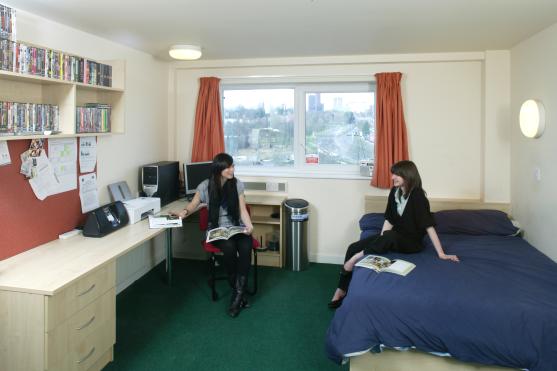Avoid Winter Financial Hangovers Over Student Accommodation

It seems idyllic to think of moving into student accommodation, or of getting back to studies in September but that may be deceptive. September is the time of year when students still want to enjoy the delights of summer, things such as beer gardens, living outdoors, and not needing to turn the heating up to 11. But soon the warm weather goes by, nights become longer and chillier, and typical living costs spiking for all students around the country.
Utility companies like this period, but we, the rest, are not so happy with it.
There is a way, however, to make savings in this period, too. It may not sound very exciting, but being a little frugal can really help canny students to make savings over time can amount to a small fortune, even in British winters. Living in student accommodation should not necessarily mean you should despair and spend the whole remainder of your loan on merely surviving through the winter.
Here is a list of tips that will do a great job helping you avoid financial problems this winter:
If you are the type who doesn’t mind sitting in their underpants even at -10 degrees outside, and inside the heating is on the highest, don’t complain when you see the heating bill. This may be a form of pleasure, a common habit, and it may sound fun and comfortable, but it also means that you just waste more money than you can possibly realise. No, that doesn’t mean you should spend the whole winter all dressed up like a member of an Antarctic expedition when staying in your student accommodation Newcastle. But all the same, you can make your heating bills way lower by just putting on some extra clothes. For example, a small investment in thermal pyjamas will pay off and make you way happier!

When winter cold comes, that is the best time to socialise with other students, and the added benefit is that when you group in one room with other students, it naturally gets warmer. The more people are in the room, the warmer it will become. Both your friends and your sweetheart can become your personal heating sources in the winter months, with the added benefit that they come absolutely free of charge. One more idea along similar lines: if any of your fellow university students have rooms which are definitely much warmer than your room, it’s worth joining them and benefiting from the balmier temperatures.
Going out may mean having to spend, but you should plan not to spend a whole fortune, and just go out as a free alternative which will not cost you a single penny. You can plan to go out even if you have to study for a day or two. Even if you prefer to be in your digs, the library can be much warmer, and you will not have to pay anything to study there! Plan educational and recreational goings out which don’t cost a penny.
You can think of foods that can keep you warm, for example soups, stews, casseroles, curries. They are all cheap to prepare, and a big pot is all you need to make them. Any extra serving can be frozen, so that you can eat them later. Follow the special offers and cook yourself, some winter warmers, so when the frost sets in, you will be nicely stocked with supplies.
Exercise may not always sound as the greatest fun for all students, but everyone knows that physical activity helps to get warm. A fast-paced walk, or a Zumba DVD dance come free of charge, will do wonders to your mood and will keep you warm along the way. Exercising in your room may mean that you will generate so much heat that you can rival the radiator’s full-week output!
Lastly but certainly equally important, nowadays student accommodation should not be freezing cold, day after day, even if you don’t keep the heating full on all the time. This is not only uncomfortable, but also contradictory to UK guidelines for sensible energy use. Thankfully, this absurd situation of insensible energy waste is being eradicated, slowly but surely. So speak to your landlord or to an agency, and express your unhappiness with the situation.
